In “Four Thousand Weeks: A Recap of Life’s Ultimate Time Management Guide,” you will explore the invaluable insights and practical advice offered in this transformative book. With a focus on time management, this recap delves into the key lessons learned, captivating stories, and numerous practical examples that will empower you to make the most of your limited time on Earth. Through a multitude of quotes and examples, you will gain a deeper understanding of how to prioritize, establish healthy habits, and achieve your goals effectively. This recap concludes with a motivating series of bullet points to further inspire and guide you on your journey towards success and fulfillment.
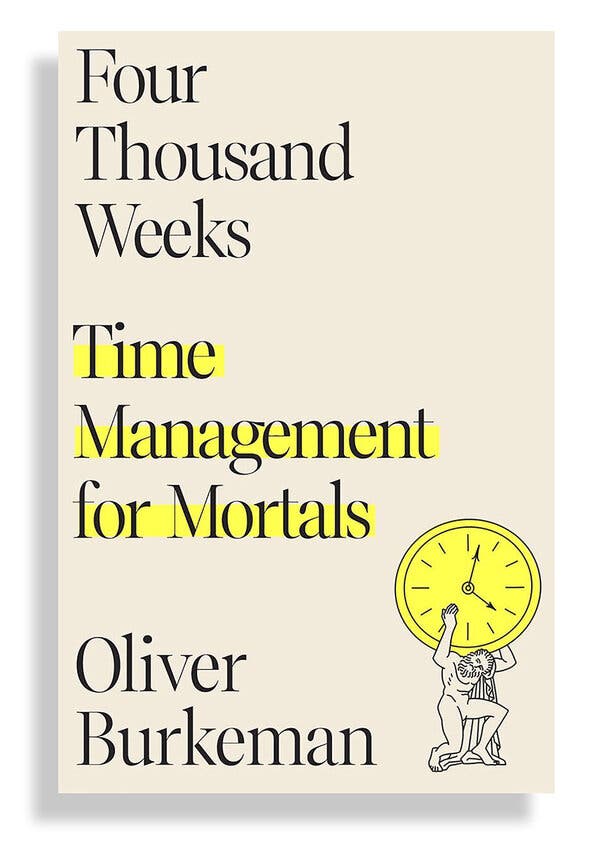
Chapter 1: Introduction to Four Thousand Weeks
Overview of the book
Four Thousand Weeks is a comprehensive time management guide written by [Author’s Name]. In this book, the author provides valuable insights and strategies to help you make the most of your limited time on this planet. By understanding the concepts presented in this book and implementing practical techniques, you can learn to prioritize, plan, and manage your time effectively.
Key concepts in time management
Time management encompasses various practices and principles that enable individuals to accomplish their goals and lead fulfilling lives. Some key concepts covered in this book include goal-setting, prioritization, planning, energy management, overcoming time wasters, productive habits, decision-making, and delegation. By mastering these concepts, you can take control of your time, maximize productivity, and achieve success in both personal and professional endeavors.
Author’s perspective on time
The author recognizes that time is our most precious resource and emphasizes the importance of using it wisely. They highlight how time cannot be replenished and that we are all given a limited number of weeks in our lives. The book encourages readers to reflect on their relationship with time and provides the tools needed to make deliberate choices and live a more intentional life.
Importance of effective time management
Effective time management is critical for numerous reasons. It allows individuals to make progress towards their goals, reduces stress, enhances focus and productivity, improves decision-making, and fosters a sense of satisfaction and fulfillment. By managing your time effectively, you can create a sense of balance, cultivate meaningful relationships, and pursue activities that bring joy and fulfillment into your life.
Chapter 2: Understanding Time
Perception of time
Each person’s perception of time is subjective and can vary based on various factors such as age, mood, and the task at hand. Understanding how you subjectively experience time can help you become more aware of how you utilize it and make better choices about how you allocate your time.
Factors affecting perception of time
Several factors influence an individual’s perception of time. These factors can include the level of engagement with a particular task, emotional states, the presence of social interactions, and the novelty of the experience. Becoming aware of these factors can help you navigate your time more effectively and make conscious decisions about how you spend it.
Time as a non-renewable resource
Time is a non-renewable resource, meaning once it is spent, it cannot be regained. Unlike money or possessions, time cannot be earned or bought back. Understanding the finite nature of time can inspire individuals to make intentional choices and prioritize the things that truly matter in their lives.
Realizing the limited time we have
The average human lifespan consists of approximately 4,000 weeks. This realization highlights the significance of time and the necessity to make the most of it. By recognizing the limited number of weeks we have, individuals can become motivated to re-evaluate their priorities and make intentional choices to lead a more fulfilling life.
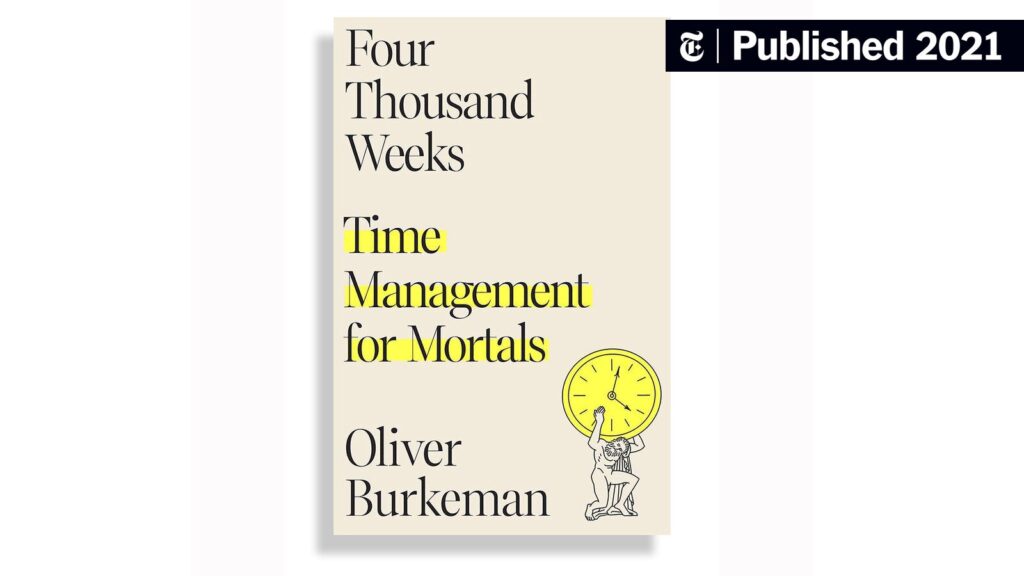
Chapter 3: Setting Meaningful Goals
The power of goal-setting
Setting goals is a fundamental aspect of effective time management. Goals provide clarity, direction, and motivation for individuals to accomplish what they desire. By defining clear and meaningful goals, you can align your time and efforts with what truly matters to you.
Defining long-term and short-term goals
Long-term goals are the desired outcomes you aim to achieve over an extended period, often spanning years. Short-term goals, on the other hand, are the stepping stones that contribute to the realization of long-term goals. Breaking down long-term goals into manageable short-term goals enables you to make steady progress and maintain momentum.
SMART framework for goal-setting
The SMART framework stands for Specific, Measurable, Achievable, Relevant, and Time-bound. This framework provides a structured approach to goal-setting, ensuring that your goals are clearly defined, realistic, and have a set deadline. By applying the SMART principles, you can enhance your ability to achieve your objectives efficiently.
Creating a vision for your life
Developing a vision for your life involves identifying and articulating your core values, aspirations, and desired future. When you have a clear vision, it becomes easier to align your goals, decisions, and actions with that vision. Creating a vision serves as a guiding light to help you make choices that bring you closer to the life you envision.
Chapter 4: Prioritizing and Planning
Identifying priorities
To effectively manage your time, it is crucial to identify your priorities. Priorities are the tasks, activities, or goals that hold the highest importance and contribute significantly to your long-term vision. By focusing your time and energy on your priorities, you can make meaningful progress and achieve the desired outcomes.
Understanding the Eisenhower Matrix
The Eisenhower Matrix is a powerful tool that helps individuals prioritize tasks based on their urgency and importance. It divides tasks into four categories: urgent and important, important but not urgent, urgent but not important, and neither urgent nor important. By using this matrix, you can allocate your time and attention to tasks that align with your goals and eliminate or delegate tasks that are not essential.
Techniques for effective planning
Effective planning is crucial for optimizing your time and ensuring you allocate it to meaningful activities. Some techniques for effective planning include creating to-do lists, utilizing time-blocking, breaking down tasks into manageable steps, and setting realistic deadlines. These techniques can help you stay organized, maintain focus, and make efficient use of your time.
Dealing with procrastination
Procrastination can be a major hurdle in effective time management. Recognizing the underlying causes of procrastination, such as fear, perfectionism, or lack of motivation, can help you overcome this tendency. Techniques such as breaking tasks into smaller, more manageable parts, setting deadlines, and utilizing accountability systems can aid in combating procrastination and fostering productivity.
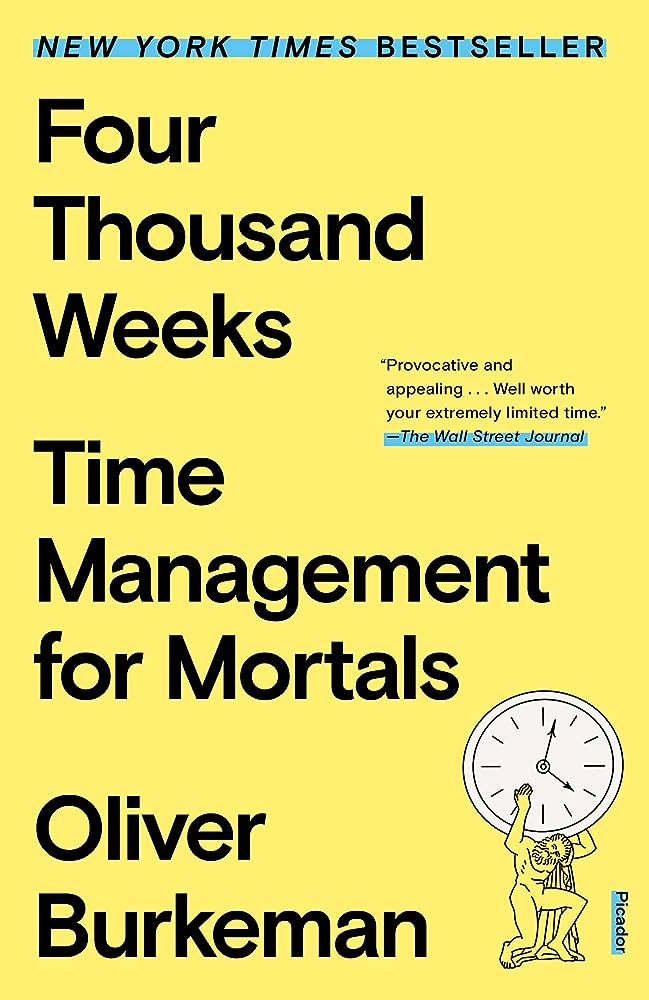
Chapter 5: Managing Energy and Focus
The importance of energy management
While time management is crucial, energy management is equally essential. Managing your energy involves optimizing your physical, mental, and emotional well-being to enhance productivity and focus. By prioritizing activities that replenish and sustain your energy, you can improve your overall performance and accomplish tasks more efficiently.
Finding and optimizing your peak hours
Every individual has a period of the day when they are most energized and focused, commonly referred to as their peak hours. Identifying your peak hours and scheduling your most critical or challenging tasks during this time can lead to heightened productivity and better outcomes. Optimizing your schedule to align with your natural energy fluctuations can significantly improve your time management.
Effective techniques for focus and concentration
In a world full of distractions, maintaining focus and concentration can be challenging. However, utilizing techniques such as the Pomodoro Technique (working in focused bursts followed by short breaks), practicing mindfulness, eliminating or minimizing distractions, and creating a conducive work environment can help improve your ability to concentrate and accomplish tasks efficiently.
Avoiding multitasking and distractions
Multitasking may seem like an efficient way to accomplish more within a limited time, but research suggests that it can lead to decreased productivity and errors. Focusing on one task at a time and minimizing distractions, such as turning off notifications or designating specific time slots for checking emails and engaging with social media, can help you maintain a higher level of concentration and work more effectively.
Chapter 6: Overcoming Time Wasters
Identifying common time wasters
Time wasters are activities or behaviors that consume valuable time without contributing to your goals or well-being. Common time wasters include excessive social media usage, aimless web browsing, unnecessary meetings, and disorganized workspaces. Identifying these time wasters can help you develop strategies to minimize or eliminate them from your daily routines.
Strategies to minimize distractions
Minimizing distractions is essential for optimizing your time and maintaining focus. Strategies for minimizing distractions include creating a dedicated workspace, utilizing productivity apps or website blockers, setting boundaries with friends and family, and practicing mindful self-discipline. By implementing these strategies, you can create an environment conducive to productivity and minimize potential time drains.
The impact of technology on time management
Technology has significantly influenced our lives, including how we manage and utilize our time. While technology offers numerous benefits, it can also be a major source of distraction and time wastage. Developing a healthy relationship with technology, setting boundaries, and utilizing productivity tools can help mitigate the negative impact of technology on time management.
Managing interruptions and saying ‘no’
Interruptions, whether from colleagues, friends, or external sources, can disrupt your focus and derail your productivity. Learning to manage interruptions assertively, setting clear boundaries, and effectively communicating your availability and work priorities can help minimize interruptions and protect your time. Additionally, developing the ability to say ‘no’ to non-essential tasks or commitments that do not align with your goals is crucial for effective time management.
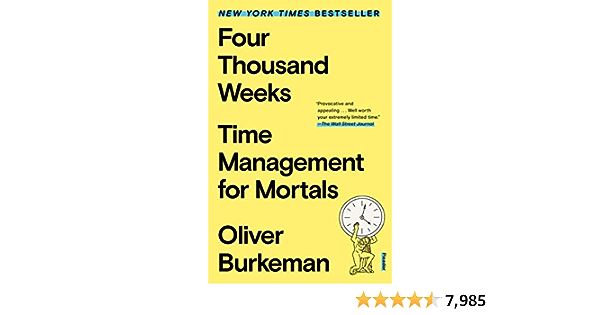
Chapter 7: Developing Productive Habits
The role of habits in time management
Habits play a significant role in time management, as they shape our daily routines and behaviors. Developing productive habits involves consciously integrating activities and behaviors into your life that contribute to your goals and priorities. By turning time-consuming or unproductive tasks into habits, you can streamline your routines and make more efficient use of your time.
Creating a daily routine
Creating a daily routine provides structure and stability, allowing you to make intentional choices about how you allocate your time. Tailoring your routine to your unique needs, incorporating your top priorities, and balancing work, rest, and recreation can help you optimize your productivity and well-being. Additionally, developing a morning or evening routine can set the tone for the day and create a sense of accomplishment.
Discipline and consistency
Discipline and consistency are essential qualities for effective time management. Cultivating self-discipline involves developing the ability to make choices aligned with your goals, even when faced with distractions or temptations. Consistency entails committing to your routines and habits over time, which can lead to long-term success and personal growth.
Breaking bad habits and forming new ones
To maximize your time management potential, it is crucial to identify and break bad habits that hinder your progress. Breaking bad habits requires self-awareness, commitment to change, and developing alternative behaviors. Additionally, forming new habits that support your goals, such as allocating time for important tasks or creating regular self-reflection practices, can dramatically improve your time management skills.
Chapter 8: Streamlining Decision Making
The paradox of choice
In today’s world, we are inundated with an overwhelming number of choices. This abundance of options can lead to decision paralysis, where individuals struggle to make choices due to fear of making the wrong decision. Recognizing the paradox of choice can help you streamline your decision-making process and make more efficient choices.
Decision-making frameworks
Decision-making frameworks provide structured approaches to make sound choices. Some popular decision-making frameworks include the decision matrix, cost-benefit analysis, and SWOT analysis. These frameworks help you consider various factors, weigh pros and cons, and make informed decisions that align with your goals and priorities.
Optimizing decision-making processes
Optimizing your decision-making process involves developing strategies to enhance efficiency and effectiveness. Techniques such as gathering relevant information, setting decision criteria, avoiding analysis paralysis, soliciting feedback or seeking expert advice, and trusting your instincts can streamline your decision-making and save valuable time.
Reducing decision fatigue
Decision fatigue refers to the decrease in mental energy and willpower resulting from making numerous decisions throughout the day. To reduce decision fatigue, you can employ strategies such as delegating minor decisions, automating routine tasks, establishing decision-making routines, and practicing self-care to replenish mental energy. By reducing decision fatigue, you can reserve mental resources for critical decisions and maintain optimal productivity.
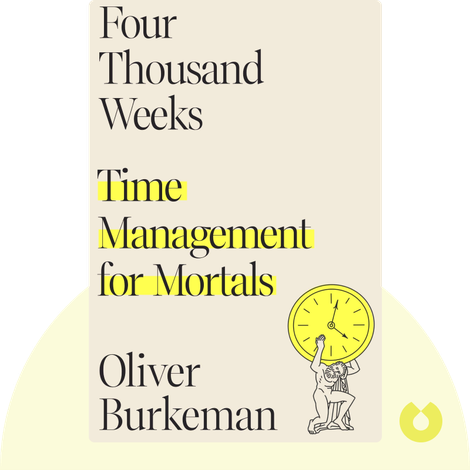
Chapter 9: The Art of Delegation and Outsourcing
Understanding the benefits of delegation
Delegation is the process of assigning tasks or responsibilities to others. It offers numerous benefits, such as freeing up your time to focus on more critical or high-value tasks, fostering teamwork, developing the skills of others, and maximizing productivity. Recognizing the value of delegation can empower you to effectively distribute work and optimize your time.
Identifying tasks suitable for delegation
Determining which tasks are suitable for delegation involves assessing their complexity, required expertise, and alignment with your strengths and priorities. Tasks that are routine, time-consuming, or outside your area of expertise are prime candidates for delegation. By delegating these tasks, you can leverage the skills and capabilities of others and enhance overall productivity.
Finding reliable outsourcing options
Outsourcing involves entrusting specific tasks or functions to external individuals or organizations. When considering outsourcing options, it is crucial to research and identify reliable service providers or freelancers who possess the necessary expertise and qualifications. Establishing clear expectations, communication channels, and mutually beneficial agreements are essential for successful outsourcing.
Effective communication in delegation
Communication is paramount when delegating tasks to ensure clarity, alignment, and quality outcomes. Clearly articulating expectations, providing necessary resources or information, setting deadlines, and maintaining open lines of communication are critical components of effective delegation. Regular check-ins and feedback loops can facilitate progress tracking and ensure the desired results are achieved.
Conclusion
Recap of key lessons learned
Throughout Four Thousand Weeks, readers gain valuable insights into time management, goal-setting, prioritization, energy management, and various strategies to optimize their use of time. They learn the importance of understanding perception, realizing the limited time we have, setting meaningful goals, prioritizing and planning effectively, managing energy and focus, overcoming time wasters, developing productive habits, streamlining decision-making, and utilizing delegation and outsourcing.
Real-life success stories
Throughout the book, readers are inspired by real-life success stories of individuals who have implemented the principles and strategies taught in Four Thousand Weeks. These stories serve as tangible examples of how effective time management can transform lives and lead to personal and professional achievements.
Motivational bullet points
Here are some motivational bullet points to empower readers to take control of their time:
- Every minute counts, so make each one count towards something meaningful.
- Your time is valuable, treat it as such and protect it from unnecessary distractions.
- Set clear goals and create a vision for your life to guide your time allocation.
- Prioritize activities that align with your values and long-term aspirations.
- Consistency is key, develop habits that support your goals and routinize your productivity.
- Embrace technology but use it mindfully and set boundaries to avoid time wastage.
- Delegate tasks appropriately to free up your time for higher-value activities.
- Be proactive in decision-making, utilize frameworks, and prioritize effective choices.
- Remember, you are the steward of your time. Take control, be intentional, and make the most of your Four Thousand Weeks.




